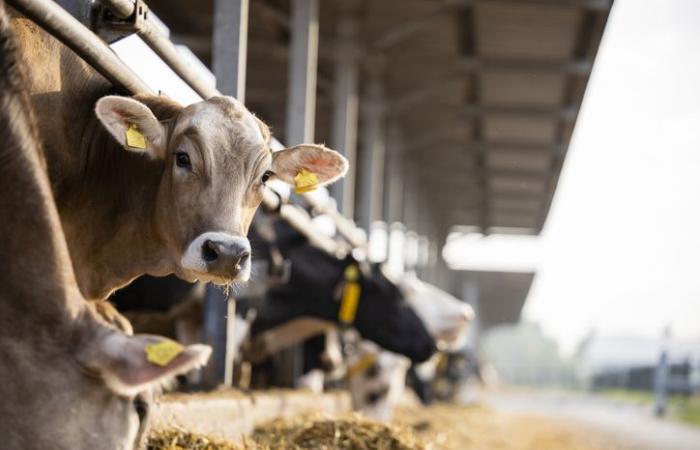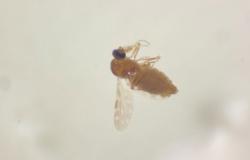Vaccination against tuberculosis reduces the severity of the disease in infected animals and reduces its spread in cattle by 89%, according to a study led by the University of Cambridge and Pennsylvania State University, published in the journal Science.
The research aimed to improve the prospects for eliminating and controlling bovine tuberculosis (TB), “an infectious disease in cattle that causes great economic costs and high impacts on global health”, says the analysis.
“This is the first study to show that cattle vaccinated with BCG and infected with tuberculosis are substantially less contagious to other cattle. This remarkable indirect effect of the vaccine, in addition to its direct protective effect, had not been measured before,” the researchers said.
Researchers examined the ability of the vaccine, Bacillus Calmette-Guérin (BCG), to directly protect cattle that receive it, as well as to indirectly protect vaccinated and unvaccinated cattle, reducing the transmission of tuberculosis. In this way, vaccinated and unvaccinated animals were placed in enclosures with naturally infected animals, in an analysis project that took place in Ethiopia and lasted two years.
“Our study found that BCG vaccination reduces the transmission of tuberculosis in cattle by almost 90%. Vaccinated cows also developed significantly fewer visible signs of tuberculosis than unvaccinated cows. This suggests that vaccination not only reduces disease progression, but that if vaccinated animals become infected, they are substantially less contagious to others,” said Andrew Conlan, associate professor of epidemiology in the Department of Veterinary Medicine at the University of Cambridge. and one of the study authors.
The team of researchers focused their studies on Ethiopia because it is a country with one of the largest livestock farms in Africa and a rapidly growing dairy sector, which suffers from a growing burden of bovine tuberculosis and lacks a current control, thus becoming a representative of transition economies in a similar situation, explains the study.
According to the study, it is estimated that the spread of infection from cattle is responsible for around 10% of tuberculosis cases in humans. Although these zoonotic tuberculosis infections (zTBs) are often associated with gastrointestinal infections related to the consumption of contaminated milk, zTB can also cause chronic lung infections in humans.
In this sense, lung disease caused by zTB may be “indistinguishable from common tuberculosis, but is more difficult to treat due to the natural antibiotic resistance of bacteria in cattle”, highlights the analysis.
Bovine tuberculosis remains endemic in many countries worldwide, including Europe, where controlling it costs livestock farmers and taxpayers hundreds of millions of euros each year, the study says.
“For more than 100 years, programs to eliminate bovine tuberculosis have relied on intensive testing and slaughter of infected animals,” said Vivek Kapur, professor of microbiology and infectious diseases and one of the study’s authors.
He continues: “this approach is inapplicable in many parts of the world for economic and social reasons, which result in considerable animal suffering and economic losses, as well as an increased risk of spreading the infection to humans. By vaccinating livestock, we hope to protect them and humans alike from the consequences of this devastating disease.”






